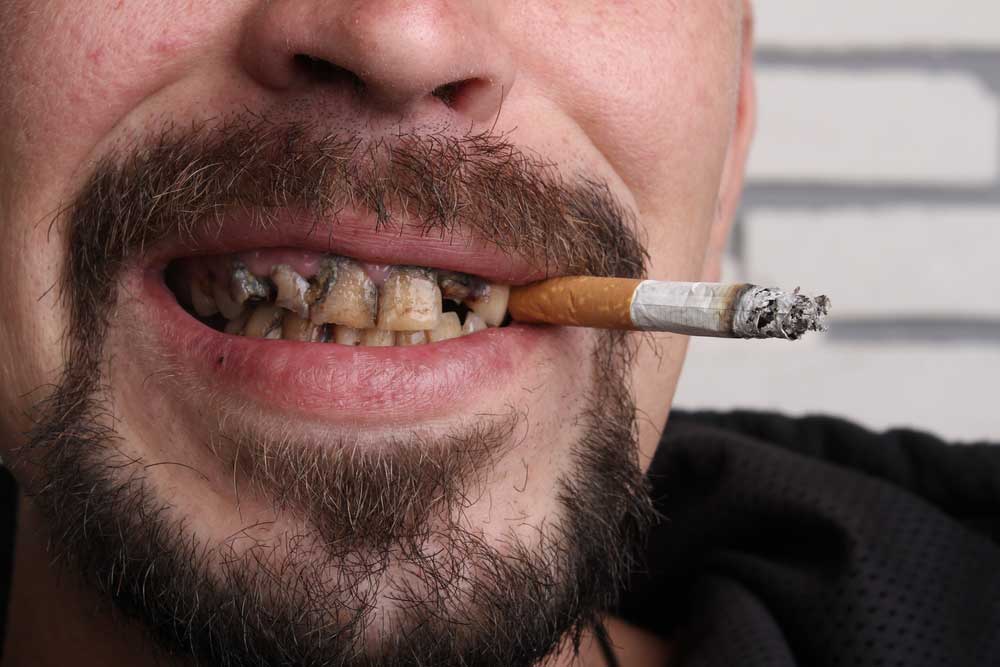How does smoking affect the teeth?

Smoking is harmful to overall health, and it also has a significant impact on oral health, especially the teeth. Here are some ways in which smoking affects the teeth:
- Staining: Smoking can cause yellowing or brownish stains on the teeth, which are difficult to remove. The tar and nicotine in cigarettes can stick to the teeth and cause them to become discolored over time.
- Bad breath: Smoking can cause bad breath, which is caused by the buildup of bacteria in the mouth. These bacteria produce foul-smelling gasses that cause bad breath. You can consult a Dentist in Islamabad for more information regarding bad breath and its treatment.
- Gum disease: Smoking is a significant risk factor for gum disease, which can cause bleeding gums, bad breath, and eventually tooth loss. The chemicals in tobacco smoke can cause inflammation of the gums and reduce blood flow to the gums, making it harder for the gums to heal.
- Tooth decay: Smoking can also increase the risk of tooth decay by damaging the tooth enamel. Smokers are more likely to have cavities than non-smokers, as the harmful chemicals in tobacco smoke can weaken the enamel and make the teeth more vulnerable to decay.
- Delayed healing: Smoking can delay the healing process after dental procedures such as extractions, root canal therapy, and gum surgery. The chemicals in tobacco smoke can reduce blood flow to the area and slow down the healing process.
- Oral cancer: Smoking is a significant risk factor for oral cancer. The chemicals in tobacco smoke can damage the cells in the mouth and throat, increasing the risk of cancer.
- Reduced sense of taste and smell: Smoking can affect the sense of taste and smell, making it harder to enjoy food and beverages.
Smoking can have a significant impact on the teeth and overall oral health. It can cause staining, bad breath, gum disease, tooth decay, delayed healing after dental procedures, oral cancer, and reduced sense of taste and smell. Quitting smoking can help to reduce these risks and improve oral health. Additionally, practicing good oral hygiene, such as brushing twice a day, flossing, and visiting the best dentist in rawalpindi regularly, can help to prevent dental problems and maintain a healthy smile.




























